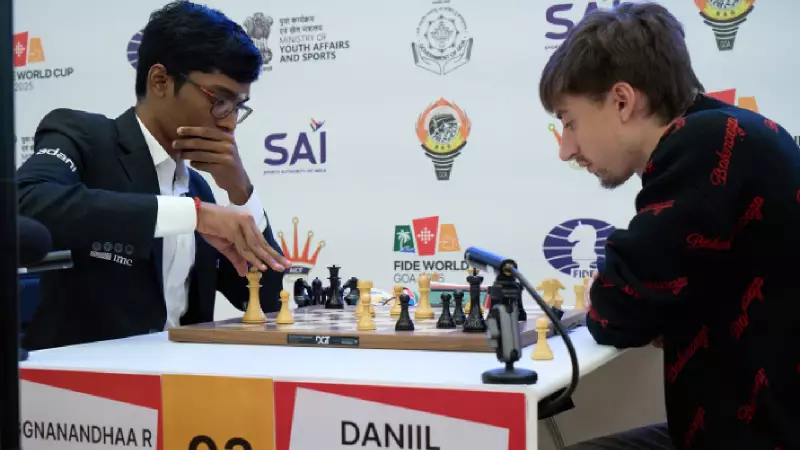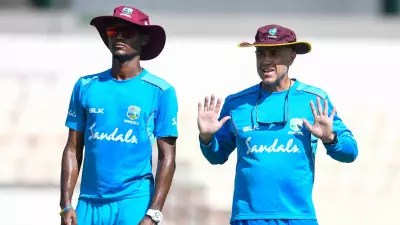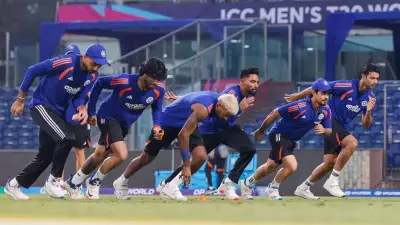
FIDE World Cup's Brutal Format Claims Another Favorite
The 2025 FIDE World Cup in Goa has reignited the perennial debate about whether winning this tournament is more challenging than clinching the World Championship itself. This edition has transformed into a graveyard for favorites, with eight of the top ten seeds eliminated by the halfway stage in a competition notorious for its unforgiving knockout format.
Praggnanandhaa's Unexpected Early Exit
Among the most shocking upsets was the fourth-round elimination of R Praggnanandhaa, last edition's finalist and one of the heavy favorites in Magnus Carlsen's absence. The 20-year-old Indian prodigy, who had stunned the chess world by reaching the final two years ago - becoming only the second Indian after Viswanathan Anand to achieve this feat - seemed uncharacteristically vulnerable from the start.
Though his class carried him to the fourth round, his title aspirations ended when he lost to Russian Grandmaster Daniil Dubov in tiebreaks. This leaves just two Indian players remaining in the tournament.
Vaibhav Suri, Praggnanandhaa's trainer, revealed that the Chennai Grandmaster had significant expectations heading into the event. "Expectation-wise, everyone was probably hoping for Pragg to have a much longer run in the event, and he himself was anticipating the same," Suri told The Indian Express from Goa. "But losses are a part of the game. I believe there are plenty of lessons to take away from this result."
Silver Lining in FIDE Circuit Despite World Cup Disappointment
Having missed qualification for the Candidates via the 2024 FIDE Circuit, Praggnanandhaa embarked on an intensive campaign to secure a spot through the 2025 Circuit. His year became a rigorous marathon of competition, scheduling tournament after tournament to maximize his chances.
Prior to this World Cup setback, Praggnanandhaa had been in exceptional form. He clinched major classical titles at the Tata Steel Masters, Superbet Chess Classic Romania, and Uzchess Cup. He also podium finishes at the Stepan Avagyan Memorial and Sinquefield Cup, and reached the Grand Chess Tour finals in Brazil.
His persistence appears to have paid dividends as he now leads the FIDE Circuit by a healthy margin and is well-positioned to book a ticket to the 2026 Candidates in Cyprus, unless Vincent Keymer, Wesley So, or Nodirbek Abdusattorov produce extraordinary results in the next 45 days.
No Consolation in Circuit Lead Says Trainer
Despite this apparent silver lining, Suri firmly rejected any suggestion that it mitigates the disappointment of the World Cup exit. "It's definitely not a relief to be out of the World Cup. Both of us wanted and expected to do much better. Regarding the FIDE Circuit, thankfully, he does have a lead, but it's not at all a done deal," he emphasized.
The grueling schedule took its toll - since December last year, Praggnanandhaa has been playing non-stop chess, a schedule that proved logistically challenging for him and his team as they toured globally.
However, Suri denied that exhaustion directly caused Praggnanandhaa's result in Goa, instead crediting his opponents who matched the Indian's skill in each round. "If you carefully look at how the tournament has been going, no one has been clinical in their wins. It's an unforgiving format. I don't think any player, for that matter, is a pushover," Suri reasoned.
The tournament path was particularly challenging - after a first-round bye, Praggnanandhaa was dragged to the eighth game in tiebreaks against Australian-Uzbek player Temur Kuybokarov in Round 2. He then cruised past Armenia's Robert Hovhannisyan before facing the rock-solid Daniil Dubov, who tested the Indian in every possible way.
Dubov's strategy proved decisive - he played safe in classical rounds before pouncing in the short-time control tiebreaks. The Russian revealed he anticipated Praggnanandhaa's overambitious approach with white pieces and knew precisely when to wait for winning chances.
"Dubov's strategy was not a surprise. We did anticipate these things, but at the end of the day, you're trying to win," Suri explained. "If you're trying to win, you have to take risks because victories won't fall into your hands. Sometimes those risks pay off, sometimes they don't... that's the nature of the game."






